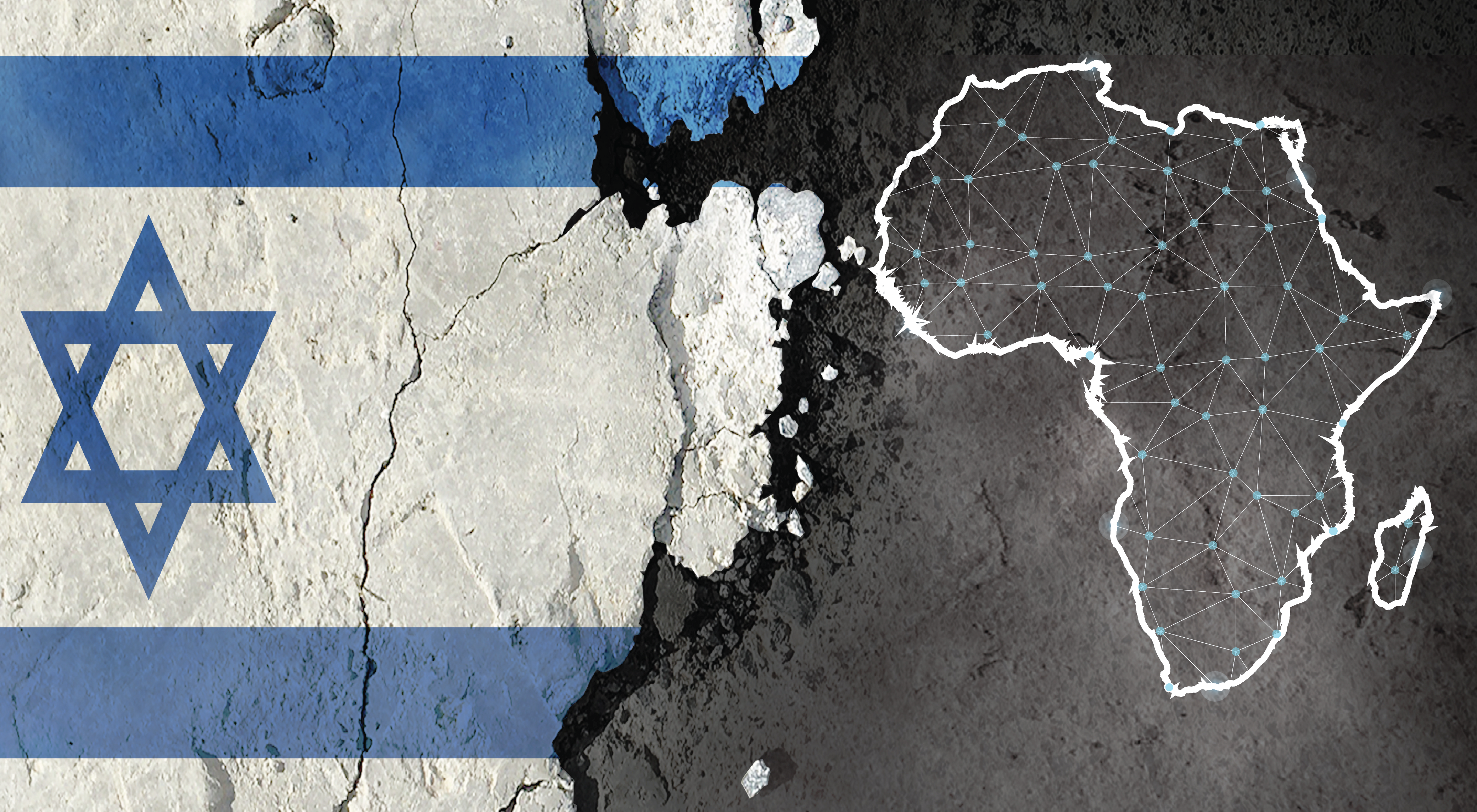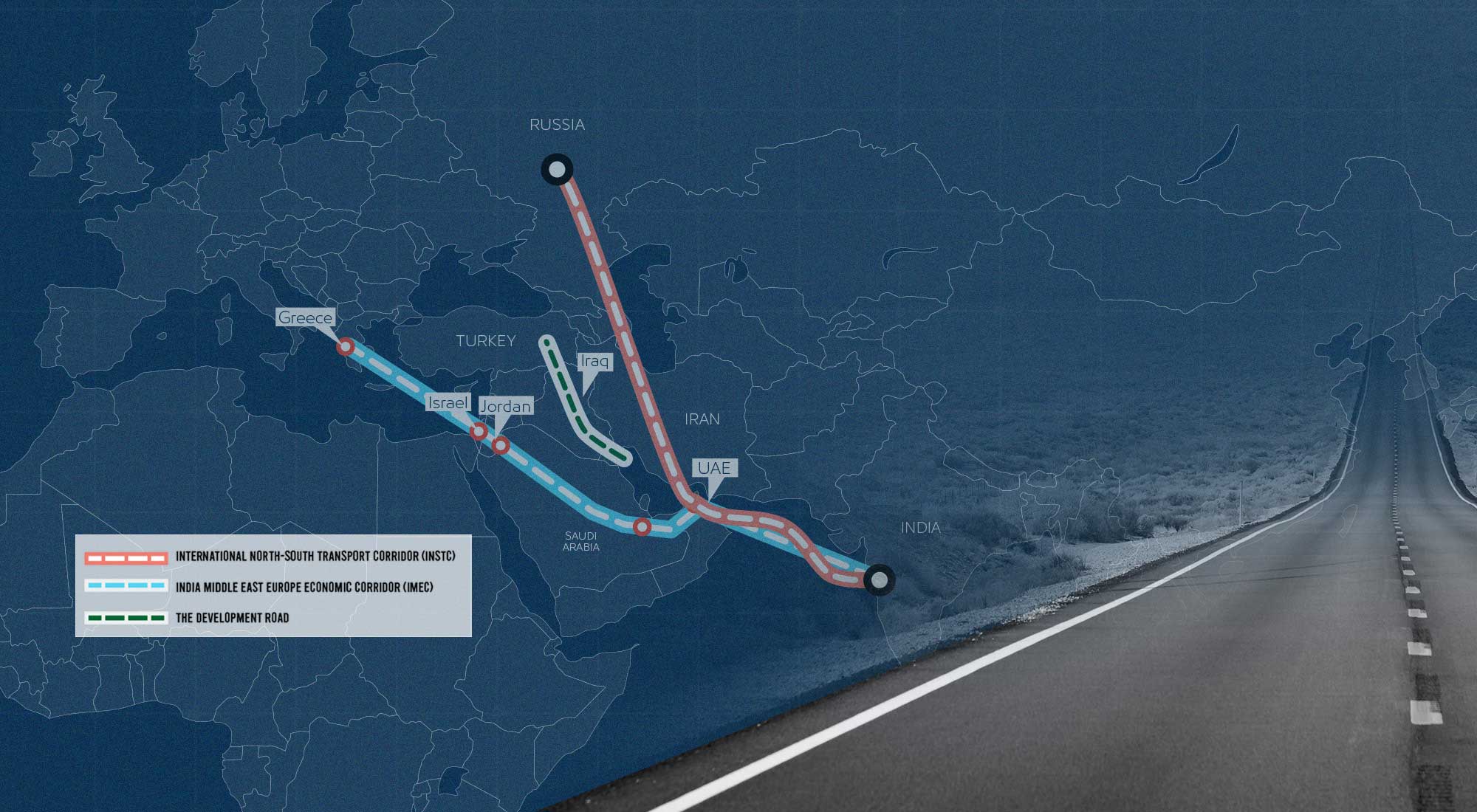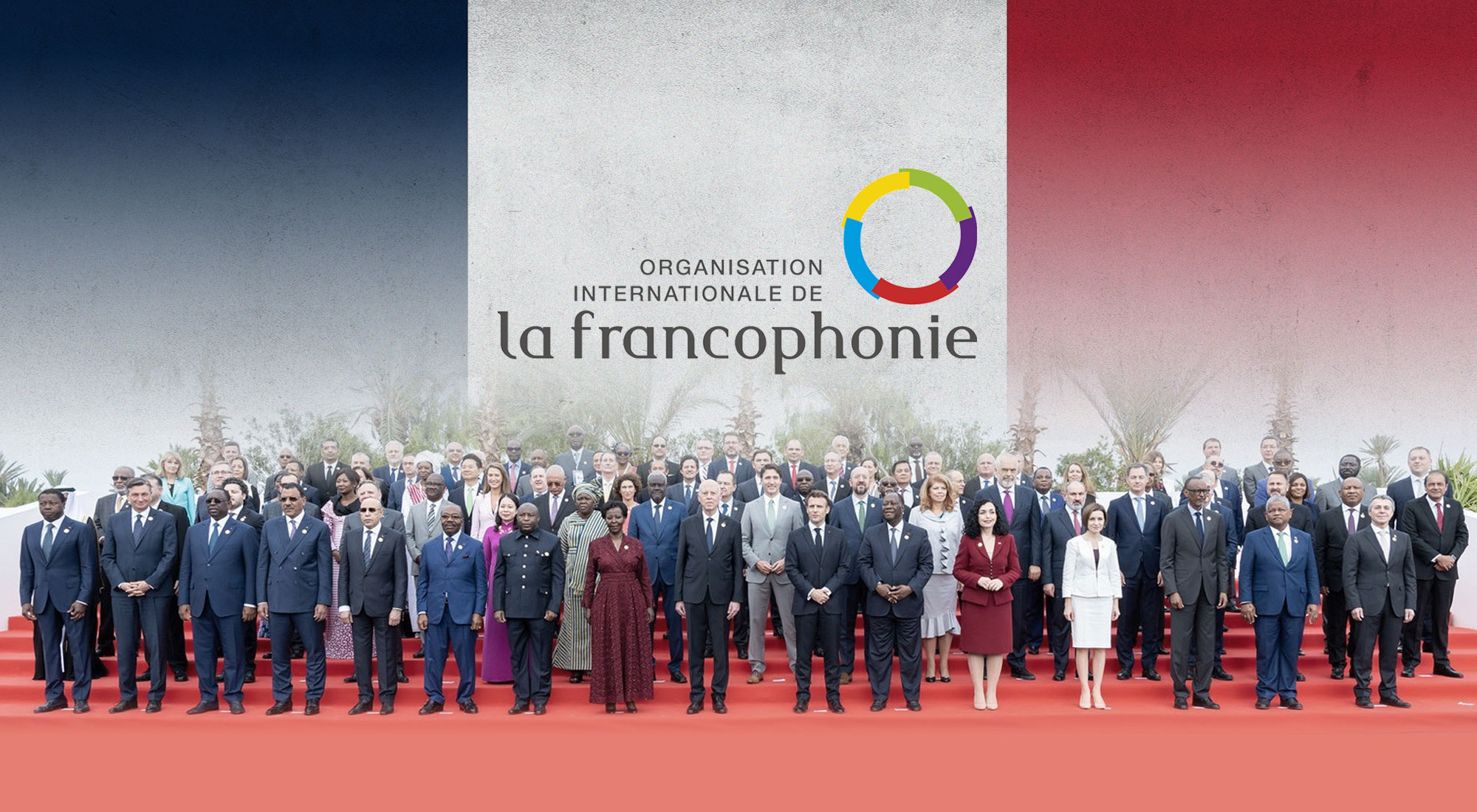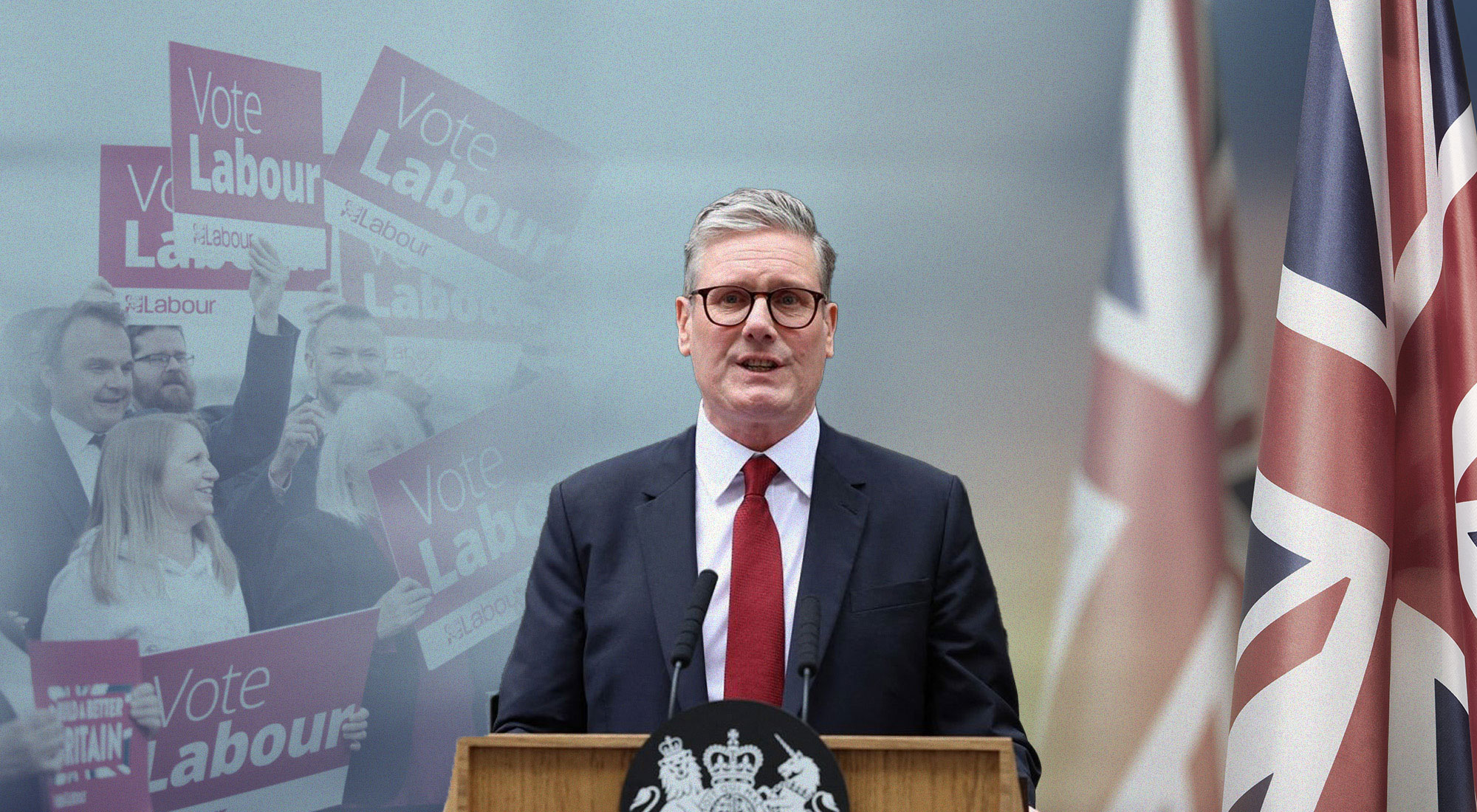Last July, Israel was granted observer status at the African Union (AU), a major move that followed two past failed attempts in the 2010s. This diplomatic victory for the Jewish State remains the object of a fierce dispute among AU member states that is likely to resurface in future meetings. But taken together with the decision of Morocco and Sudan to normalize their diplomatic relations with Israel, it reflects the increased importance of Africa in Israel’s foreign policy. Neglected, or misunderstood, by pundits, this Israeli engagement with the African continent is in fact not new. It dates to the 1950s, when David Ben-Gurion focused on Africa as a means of bypassing Israel’s isolation in the Middle East. In the last decade, this policy was revised and revigorated by former Prime Minister Netanyahu, who actively courted African leaders and travelled across the continent.
Overall, Israel’s ties with African countries have been primary driven by military and intelligence cooperation, with economic and development projects considered a secondary priority. Although this policy has resulted in most African states recognizing Israel, the latter still suffers from inter-African disagreements on the way to diplomatically approach the Jewish State. In other words, Israel has experienced a so-called “mistress syndrome” in relations with the continent that has been already constraining its diplomatic expectations elsewhere: African leaders are pleased to gain from security cooperation with Israel, but are less comfortable about publicizing these exchanges.
The Origins of Israel’s African Policy
In the years after the creation of Israel, its leaders looked at Africa as the location of potential partners to outflank its immediate Arab neighbors. This was informed by the so-called doctrine of the “periphery” that drove Israel’s regional policy in the era of David Ben-Gurion. The doctrine posited that because the core of the Middle East – i.e., the Arab countries – was hostile to Israel, the latter needed to engage with the periphery and, specifically with non-Arab countries such as Turkey, Iran, and African states. This approach was based on a classic realist assumption: the enemy of my enemy may be my friend.[1]
In subsequent years, Israel built ties with several African countries such as Uganda and Kenya. In the late 1950s, Ethiopia became one of the key partners of Israel on the African continent. Consulates were opened in these countries in 1956. A diplomatic representation was also opened in Ghana in 1957. By the 1970s, Israel was also cultivating secret ties with apartheid South Africa that involved military, and possibly nuclear, cooperation.[2]
But throughout the Cold War, all these relations proved to be extremely fragile. In 1974, the fall of the Emperor Haile Selassie in Ethiopia led the new regime in Addis Ababa to distance itself from the Jewish State. Meanwhile, Israel’s engagement with Uganda did not prevent its ruler Idi Amin Dada from offering refuge in 1976 to the hijackers of an Air France flight with 248 passengers originating in Tel Aviv. At first, Israel engaged with Amin Dada through past military networks, hoping that he would facilitate the release of the hostages. But when it became clear that the Ugandan ruler was deceiving them and siding with the hijackers, the Israel Defense Forces launched the famous rescue operation named “Thunderbolt”, otherwise known as Operation Entebbe.[3] Given the distance between Uganda and Israel, Israeli commandos were provided aircraft refueling in Kenya, which had its own share of grievances with Amin Dada and saw the Israeli raid as a convenient way to weaken its neighbor. Among other lessons, the episode underlined the volatility of Israel’s African partnerships.
African attitudes towards Israel were also largely influenced by the evolution of the Arab-Israeli conflict. Both the major wars in 1967 and 1973, as well the Israeli occupation of Arab territories, led many of the African States to sever their ties with the Jewish state. Since then, African diplomats have maintained a general call for an end to the conflict and the independence of a Palestinian state within the 1967 borders with East Jerusalem as its capital. Furthermore, Israel’s deep ties with the South African apartheid regime tarnished its public image: even though the extent of cooperation was reduced in the late 1980s, Israeli leaders never endorsed the movement in the US and Europe to sanction the apartheid regime. This left a negative mark that shapes African perceptions of Israel till this day.
Despite these crises, Israel’s presence on the African continent has endured. In the past decade, it was provided a new momentum under the leadership of former Prime Minister Netanyahu. The latter extensively travelled to Africa, either for bilateral visits to countries like Ethiopia, Kenya and Uganda, or for regional summits such as the ECOWAS Africa-Israel Summit in 2017, during which he boasted being “the first Israeli prime minister to visit Africa in decades”.[4] Netanyahu proved particularly effective at identifying changes in the mindset of African leaders and building on them. For instance, he was able to claim a victory in early 2021 when Equatorial Guinea announced the relocation of its embassy to Jerusalem, a decision that followed a similar declaration by Malawi in November 2020.
All in all, Netanyahu’s visits as well as those of his Foreign Ministers during this period paved the way to a new relationship between the continent and the Jewish State. This is evidenced by the mere fact that a significant majority of African states now recognize Israel. In this perspective, the accession of Israel to the status of observer status with the African Union built as much on the momentum gained from the Abraham Accords signed in 2020 as on the long history of Israeli outreach to African leaders.
The substance of Israel’s policy in Africa
Israel’s active engagement in Africa is the sum of different priorities. First, Israel’s vision of Africa is shaped by the sense of a common fate between the Jewish people and black people. In one of his books, Altneuland, Theodore Herzl, the founding father of Zionism, wrote that “once I have witnessed the redemption of the Jews, my people, I wish also to assist in the redemption of the Africans”.[5] Cultural affinities also regularly featured when Israel and Ethiopia under Haile Selassie became strategic partners. Back in 1970, Shimon Peres wrote that “there was something romantic in the relations between Israel and Ethiopia (…) it seemed that each country had a special feeling for the other”.[6]
The fate of ethnic minorities in Africa resonates with Israeli politicians. This idea of a special tie led Israel to plan operation Moses, the exfiltration of Ethiopian Jews, known as the “Falashas”, from Sudan during the civil war of 1984. Likewise, when Netanyahu visited Rwanda in 2016, he declared that “My people know the pain of genocide as well, and this is the unique bond that neither one of our people would prefer to have”.[7]
At the same time, this cultural lens may have blurred Israeli understanding of African politics: Israeli leaders from the right and the left persisted in the 1980s in supporting the South African apartheid regime; the growing international pressure imposed on the latter only fed the narrative among some Israeli decisionmakers of a common fate. Later, Israel actively supported South Sudan, a new State born out of the desire to protect a Christian and animist population against the Khartoum government led by Omar al Bashir. The south Sudanese national narrative mirrored the Israeli self-identity and led the Jewish state to provide South Sudan with weapon supplies in the first half of the 2010s. But this involvement ultimately dragged Israel in the middle of the South Sudanese civil war that has persisted over the past decade.[8]
But if the idea of the true bond between Jews and Africans may have shaped the mindset of Israeli decision-makers, the substance of their cooperation with African states was eventually driven by pragmatic security considerations. The military and intelligence sectors saw by far the most substantive cooperation between Israel and African states. By the end of the 1960s, it is estimated that the Israelis had some form of military cooperation (either through advisory missions or arms sales) with seventeen African states. For instance, Israeli officers provided Ethiopian armed forces with extensive support for their military training and education programs.[9] Starting in the 1980s, President of Cameroun Paul Biya relied on former Israeli officers to build the country’s praetorian guard, the Rapid Intervention Battalion. More recently, Israeli defense and cybersecurity companies have also been awarded major contracts across the continent.
If the objective of this Israeli engagement was initially to counter the influence of Egypt in Africa, it faded away after the signing of the 1979 Egypt-Israel peace treaty. Since then, Israeli security interests in Africa have been shaped by both the expansion of Islamist groups and Iran’s influence strategy on the continent. Israel closely monitors terrorist activities in Africa, with a focus on cooperation and coordination among groups operating from the Sahel to the Middle East. In 2014, the then Foreign Minister Avigdor Liberman proposed during a visit to Kenya the setting-up of a “Middle Eastern-African Joint Anti-terrorism mechanism”, though the idea ultimately did not gain much traction.[10]
Elsewhere, the Iran factor informs Israel’s policy. For instance, the rapprochement with Sudan predated the Abraham Accords. It started in 2016 as a result of Khartoum’s decision to distance itself from Iran, which had been militarily active in the country since the 1980s.[11] Countering Iranian influence is also a key driver behind Israel’s outreach to West Africa. The region has been traditionally the target of Iranian investments. It is also a major location for Hezbollah’s financial networks. Israel has, for instance, strengthened its presence in the Ivory Coast, as it suspects some of the local commercial entities tied to the Lebanese diaspora to be engaged in financing the Party of God in Beirut.[12]
The limitations of Israel’s policy in Africa
From the outset, the first limitation of Israeli policies in Africa was its extreme personalization. As demonstrated in the past decade, the revival of that relationship was driven by the leadership of Netanyahu. For all his flaws, the former prime minister was a skillful politician who believed in the performativity of big speeches. He was effective in visiting countries and meeting heads of states who were traditionally reluctant to meet Israeli officials. Though these visits had great symbolic value and promised clear momentum, they did not translate as much as expected into concrete action at the policy level.
Israel’s engagement with African states evidences the primacy of defense and intelligence cooperation. At first, it was assumed that Israel’s military expertise provided the added value to the partnership policy in Africa. The perceived Israeli excellence in military affairs conferred a concrete incentive for African rulers keen on improving their own capacities.[13]
But because military considerations were the priority in Israel’s policies in Africa, they did not leave much space for other initiatives. This imbalance derived from the way foreign policy is conducted in Israel. The Foreign Ministry has traditionally been a marginal actor in formulating the country’s foreign policy. It is undermanned and under resourced and the key centers of decision remain the Prime Minister’s office, the Israel Defense Forces, and the Intelligence services. In practice, Israeli diplomats do not have the means to cultivate stronger and deeper ties with African counterparts. Although 46 African countries have official diplomatic relations with Israel, there are only 13 Israeli embassies on the continent. Many of those responsible for bilateral relations remain at the Foreign Ministry in Jerusalem and rarely travel to the continent. Overall, it is estimated that no more than thirty diplomats deal with Africa inside the Ministry.[14]
Admittedly, economic and development projects were initiated. Israeli support for the Ethiopian agricultural sector was already on the agenda of the partnership with Addis Ababa established in the 1950s. Since that time, Israel has relied on its own development agency, Mashav, to promote such programs but, like the Foreign Ministry, the entity suffers from limited resources, as Israel dedicating only 0.1% of its GDP to international aid.[15] Israeli companies do operate on the continent primarily in the mining industry, agricultural technology and, not surprisingly, the defense sector. But their presence is more the result of individual networks than of political support provided by the authorities in Jerusalem.
This imbalance between military and economic matters creates a narrow security-centered approach that has actually reduced the prospects of building broad bilateral partnerships. This approach has further fueled the “mistress syndrome” that characterizes Israel’s relations with African states.[16] According to this syndrome, African leaders are comfortable with the idea of secret, or merely discreet, cooperation with the Israeli military-industrial complex, but are less inclined to publicize the full extent of their relationships with the Jewish state.
This “mistress syndrome” is evidenced in the way African states generally oppose Israel at the UN. Statistically, African states tend to vote for UN resolutions condemning Israeli military interventions in Palestinian territories. For the year 2019, a US survey on votes at the UN found that African states opposed Israel in 90% of the votes relating to the Palestine issue.[17] South Africa and Namibia have also called on the UN to recognize Israel as an apartheid regime and many African intellectuals and activists signed petitions such as the Global South Response that demand the end to Israel’s occupation of Palestinian land.
Such attitudes also explain why the acceptance of Israel as an observer state at the African Union was not easily achieved. The decision was taken by the AU Commission Chairperson Moussa Faki Mahamat in July 2021. Observers speculated that the move had been pushed by the Democratic Republic of Congo, which currently holds the rotating chair of the AU and whose leader Felix Tshisekedi visited Israel in October.
The decision could have been approved quietly. After all, other states such as the UK, the UAE, Kuwait, and Greece already have such a status. The Palestine Authority was also granted the same observer rights back in 2013. The status itself is in effect no more than symbolic, as observer states cannot intervene in the decision-making of the AU. Still, no less than 21 of 55 member states expressed their discontent with the decision to admit Israel as an observer after it was made and reiterated that two previous Israeli applications (in 2013 and 2016) were rejected primarily because of the occupation of Palestinian territories. For the time being, the accreditation has not been revoked, but the issue is expected to resurface on the agenda of the next Summit of the Heads of State planned in early 2022.
All in all, this reflects the complex reality of Israel’s position in Africa. For decades, the Jewish State has cultivated ties with African states, but this was primarily done through discreet, if not secret, cooperation. African caution vis-a-vis full partnership was largely influenced by the Palestinian issue. However, the signing of the Abraham Accords fundamentally altered this equation by decoupling the normalization of ties with Israel and the progress on the establishment of a Palestinian state. Th Accords helped African countries such as Morocco and Sudan to revise their own calculus, as did the AU with its decision of last July.
In this context, the future of Israel’s relations with Africa will depend on two main factors. The first will be the ability of Israel’s governments to go beyond military and intelligence exchanges and support broader economic and development initiatives. The second relates to the necessity of reviving the Israeli-Palestinian peace process. Even though on the map, African countries may seem far away from Gaza and the West Bank, their civil societies look at the Palestinian cause as a major issue that echoes local memories of colonial occupation. This is why the perpetuation of the conflict will only prevent Israel from moving from cold normalization to warm relations with its potential partners in Africa.
References
[1] Jean-Loup Samaan, Israel’s Foreign Policy Beyond the Arab World: Engaging the Periphery, New York, Routledge, 2017.
[2] Sasha Polakow-Suransky, The Unspoken Alliance: Israel’s Secret Relationship with Apartheid South Africa, New York, Vintage, 2011.
[3] Saul David, Operation Thunderbolt: Flight 139 and the Raid on Entebbe Aiport, the Most Audacious Hostage Rescue Mission in History, New York, Back Bay Books, 2017.
[4] “PM Netanyahu addresses ECOWAS Africa-Israel Summit”, Israel Ministry of Foreign Affairs, 4 June 2017. https://www.mfa.gov.il/MFA/PressRoom/2017/Pages/PM-Netanyahu-addresses-ECOWAS-Africa-Israel-Summit-4-June-2017.aspx
[5] Quoted in: Golda Meir, My Life, New York, Dell Publishing Co., 1975, pp. 308–309.
[6] Shimon Peres, David’s Sling, London, Weidenfeld and Nicolson, 1970, p. 149.
[7] Africa Research Bulletin, “East Africa – Israel Landmark Trip”, July 2016.
[8] Tovah Lazaroff, “UNSC report: Israeli weapons used in South Sudan’s civil war”, Jerusalem Post, 26 August 2015.
[9] Haggai Erlich, Alliance and Alienation: Ethiopia and Israel in the Days of Haile Selassie, Red Sea Press, New Jersey, 2014, p.85.
[10] Africa Research Bulletin, “Africa – Israel Anti-Terrorism Mechanism?”, June 2014.
[11] Sue Surkes, “Sudan said willing to consider normalizing ties with Israel”, The Times of Israel, 21 January 2016; Akiva Eldar, “Will Israel revive its relationship with Khartoum?”, Al Monitor, 17 March 2016.
[12] Mathieu Olivier, “En terre promise abidjanaise”, Jeune Afrique, November 2021, p.54.
[13] Zach Levey, “Israel’s Strategy in Africa, 1967-67”, International Journal of Middle East Studies, February 2004, Vol.36, No.1, pp.71-87.
[14] Benjamin Augé, “Relations Israël-Afrique : Que retenir de la décennie Netanyahou ?”, Institut Français de Relations Internationales, November 2020, p.15.
[15] Benjamin Augé, op. cit., p.17.
[16] Noa Schonmann, “Back-door diplomacy: the mistress syndrome in Israel’s Relations with Turkey, 1957-60” in: Clive Jones, Tore Petersen (Eds.), Israel’s Clandestine Diplomacies, Oxford, Oxford University Press, 2013, pp.85- 103.
[17] Benjamin Augé, op. cit., p;25.








